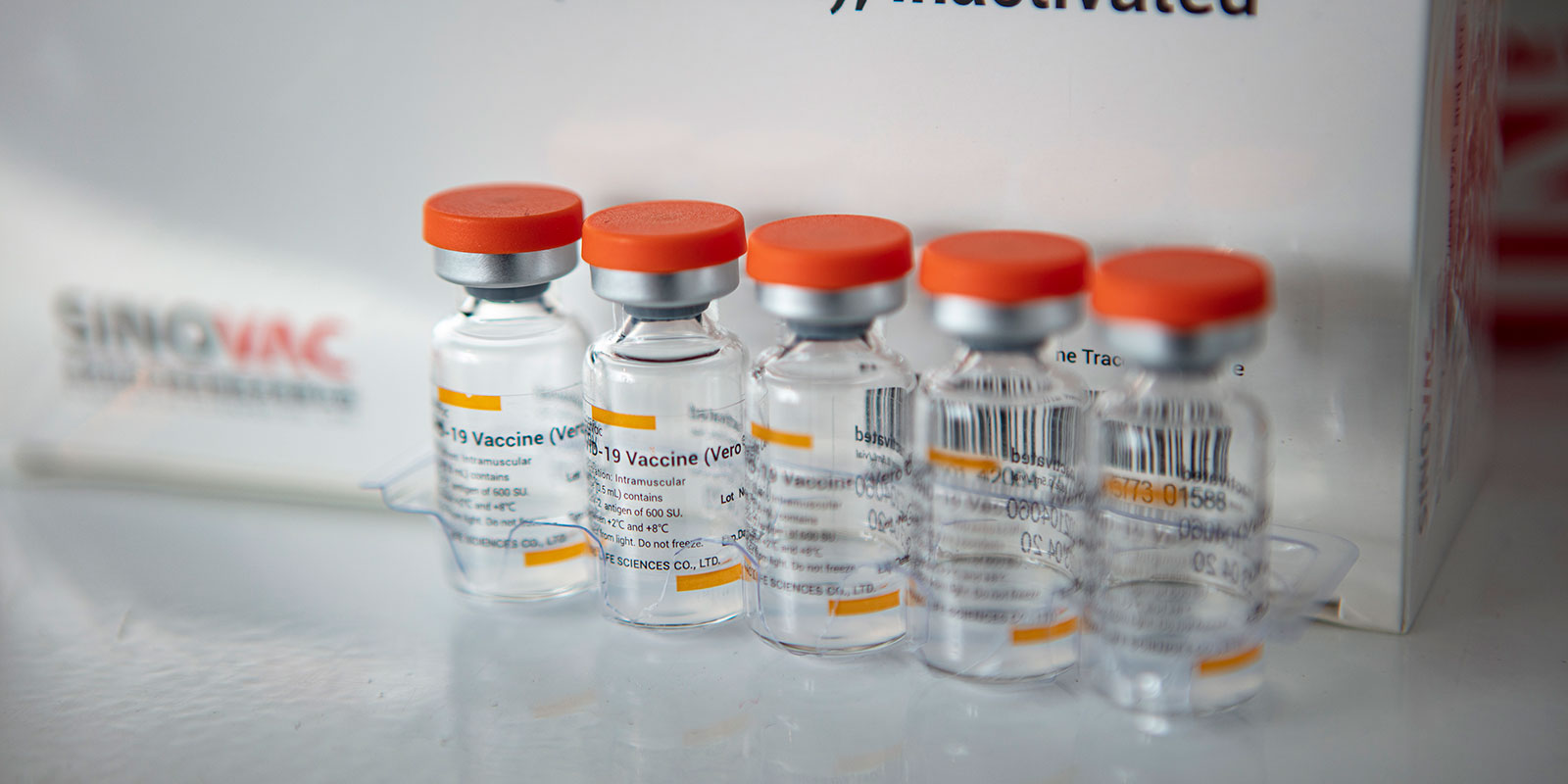The Forum for China-Africa Cooperation (FOCAC) will convene for the 8th time this year in Dakar, Senegal. The triennial summit has since become a major event in global politics since its inaugural meeting in 2000 as it sets the tone for Sino-African relations. The FOCAC is an opportunity for comprehensive engagement on the relations between the two parties focusing on such important issues as the economy, geopolitical relations, education, media, people-to-people, military among other areas of cooperation.
The biggest issue facing Africa at the moment, and which is likely to be at the top of the #FOCAC2021 agenda, is the COVID-19 vaccination campaign @DavidMonyae @NkalaSizo
Tweet
Sino-Africa relations have grown in leaps and bounds under the auspices of FOCAC. Trade between the two parties grew from US$10 billion in 2000 to a peak of US$208 billion in 2019. China has also become a major source of credit for African countries providing a total of US$150 billion in credit lines between 2005 and 2020. In the same period, China’s foreign direct investment (FDI) stock has accumulated a value of US$345 billion. The value of Chinese businesses in Africa amounts to a staggering US$2 trillion. During the 2015 and 2018 FOCAC Summits China pledged US$60 billion in aid in the form of concessional loans, investments, scholarships, and development funds. This has seen Chinese companies engage in huge infrastructure projects in the energy, water and sanitation, communication, and transport sectors across Africa. However, the 2021 FOCAC Summit takes place in the context of the global COVID-19 pandemic which the world has been struggling to contain for nearly two years now. The deadly pandemic has claimed over 4.5 million lives, infected over 220 million people and almost brought the global economy to a halt.
It is expected that the upcoming summit will cast the spotlight on containing the pandemic. Although Africa has only recorded 3.6% and 4% of the global COVID-19 cases and deaths, it has suffered a major economic recession (shrunk by 3% in 2020) which has thrown millions of people into poverty and stymied the continent’s development progress. China has been relatively successful in containing the pandemic recording less than 100 000 cases and under 5000 deaths. However, it also suffered a major economic set back as it posted a growth rate of 2.3% in 2020 which was the lowest in over 40 years.
Since the beginning of the pandemic, China and Africa have cooperated extensively in the quest to contain its spread. China’s health diplomacy in Africa has been in overdrive. At the May 2020 World Health Assembly (WHA), Chinese President Xi Jinping pledged US$2 billion COVID-19 aid to developing countries. He also mentioned that China had 46 medical teams stationed across Africa and had arranged the pairing of Chinese hospitals with 30 African hospitals to expedite knowledge sharing. Most notably, he committed to helping build the headquarters of the Africa Centres for Disease Control and Prevention (Africa-CDC).
At the Extraordinary China-Africa Summit on Solidarity Against COVID-19 on 17 June 2020, China and Africa reiterated their willingness to cooperate with each other in fighting the pandemic. At the 2021 WHA in May President Xi mentioned that his country had spent US$2 billion in COVID-19 related assistance, supplied 280 billion masks, 3.4 billion protective suits and 4 billion testing kits, a significant number of which came to Africa. An arrangement was also put in place to pair Chinese hospitals with 41 African hospitals. He also committed to providing US$3 billion in aid to developing countries over the next three years to support the efforts in containing the pandemic.
The #FOCAC2021 Summit will likely focus attention on Africa’s post-COVID-19 recovery @DavidMonyae @NkalaSizo
Tweet
That notwithstanding, the biggest issue facing Africa at the moment, and which is likely to be at the top of the 2021 FOCAC agenda, is the COVID-19 vaccination campaign. Africa is trailing terribly behind in the global vaccination campaign having administered only 7.8 doses per 100 people compared to the world average of 71 per 100 people. To put it in perspective, Europe is on 100, North America on 95, South America follows closely on 85, Asia on 78 and Oceania on 58. Without enough vaccines, Africa will struggle to contain the pandemic and restart its economy. China has been active in supplying its vaccines to African countries having delivered 56.3 million vaccines to the continent to date. Africa has purchased 74.35 million vaccines and got 12.16 million more in donations from China. But Africa’s numbers have been small compared to 371.4 million vaccines delivered in Asia Pacific and 215 million in Latin America by Beijing.
Hence, when Chinese and African leaders meet at the upcoming summit, they will have to find ways of improving Africa’s vaccine supply. This could be done through setting up joint vaccine production centres on the continent, improving the logistics infrastructure to facilitate the distribution of the vaccines, and making financing arrangements for the purchase of more vaccines. In the long term, discussions have to be centred around building a robust health infrastructure to withstand future health shocks through expanding the skills base, investing in research and development and expanding Africa’s drug manufacturing capacity. This will ensure that Africa is not dependent on outside help in times of public health emergencies.
Most importantly, the 2021 FOCAC Summit will likely focus attention on the post-COVID-19 economy. It is important for African leaders to clearly communicate their priorities and strategies regarding their countries’ economic recovery from the COVID-19 shock. As such, the FOCAC Summit affords Africa an opportunity to court its biggest development partner in addressing a myriad of pressing issues including accelerating and scaling up the vaccination campaign, building a stronger healthcare system and the post-pandemic economic recovery.
Dr David Monyae is the Director of the Centre for Africa – China Studies at the University of Johannesburg and Dr Sizo Nkala is a postdoctoral research fellow at the same Centre.



